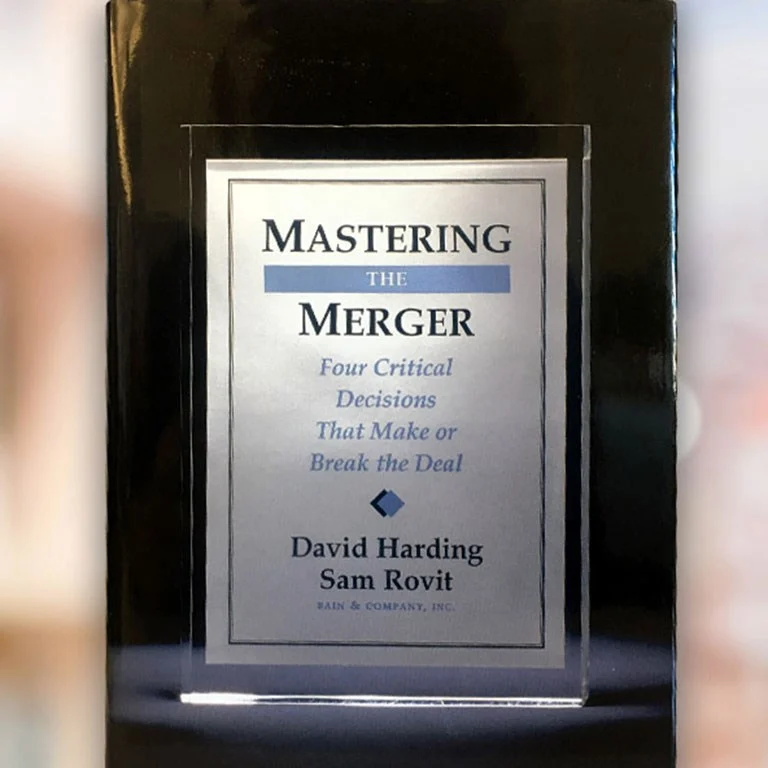Article
Most CEOs today recognize that their businesses can't succeed without acquisitions. Companies need to add new capabilities to find the next wave of profitable growth, and the vast majority will find that an acquisition is the most efficient way to deliver what they are looking for. Yet acquisitions can be treacherous. In buying their way to growth, many companies lose sight of the fundamental rules for making money in their industries.
How do successful acquirers avoid that common pitfall? When we analyzed the performance and deal results of 1,700 companies, our research confirmed that major deals succeed in only two circumstances—when they buttress a company's current basis of competition or when they enable a company to lead or keep up with its industry by shifting to a different basis of competition.
Understanding your business's basis of competition—how it makes money and competes—is the starting point for any successful deal. Typically, companies strive to achieve industry leadership in five ways: through superior cost position, brand power, consumer loyalty, real asset advantage, or government protection. Dell, for example, is a classic cost leader. For credit card issuers like MBNA, consumer loyalty is critical, because customer acquisition is so expensive. The edge of Harrods, the venerable department store, comes from its tony London location—its asset advantage. Competing in a regulated industry, Comcast has honed its advantage in obtaining rights of way and negotiating with municipalities to set rates.
For food multinational Kellogg, brand strength is unquestionably the basis of competition. So when Kellogg's once-crisp business started to grow soggy in the 1990s, CEO Carlos Gutierrez focused on how the company could sustain that strength in a rapidly consolidating marketplace. He concluded that Kellogg needed broader distribution, particularly for its growing category of snacks and breakfast bars.
The best way to distribute snacks was via a direct store delivery system, which moved products directly from bakeries onto the store shelves, speeding inventory turnover. But building one would be expensive; Kellogg needed to buy one. So it acquired Keebler, the cookie and cracker maker, which already had a strong DSD system in place. The acquisition became pivotal in Kellogg's turnaround, as revenue rose 43 percent from 1999 to 2003 and operating income nearly doubled. The deal succeeded because it bolstered Kellogg's basis of competition, extending its brand strength into new products and channels.
Successful acquirers in both stable and changing industries use the basis of competition to guide their deal decisions. Radio powerhouse Clear Channel Communications offers a good example of how to approach deals when your industry is in flux. In 1996, when Congress eliminated national limits to the number of stations a company could own, the basis of competition in radio shifted from government regulation to cost overnight. Clear Channel aggressively pursued acquisitions to gain scale and implemented innovative cost-cutting practices—such as using the same "local" weatherman in distant cities—and quickly vaulted to the top of the industry.
Can a deal solve your growth problem too? In many cases, yes—as long as that deal is built on a sound competitive foundation and anchored in the fundamental way your company makes money. Understand that, and you've taken the first crucial step toward deal success.
David Harding is a partner in Bain's Boston office and a leader in the firm's Strategy and Organization practices. Sam Rovit is a partner based in Chicago and leads Bain's Global Mergers & Acquisitions practice. They are the authors of Mastering the Merger: Four Critical Decisions That Make or Break the Deal, published by Harvard Business School Press. http://www.masteringthemerger.com

Mastering the Merger
Learn more about the core decision strategies that help companies win in M&A.